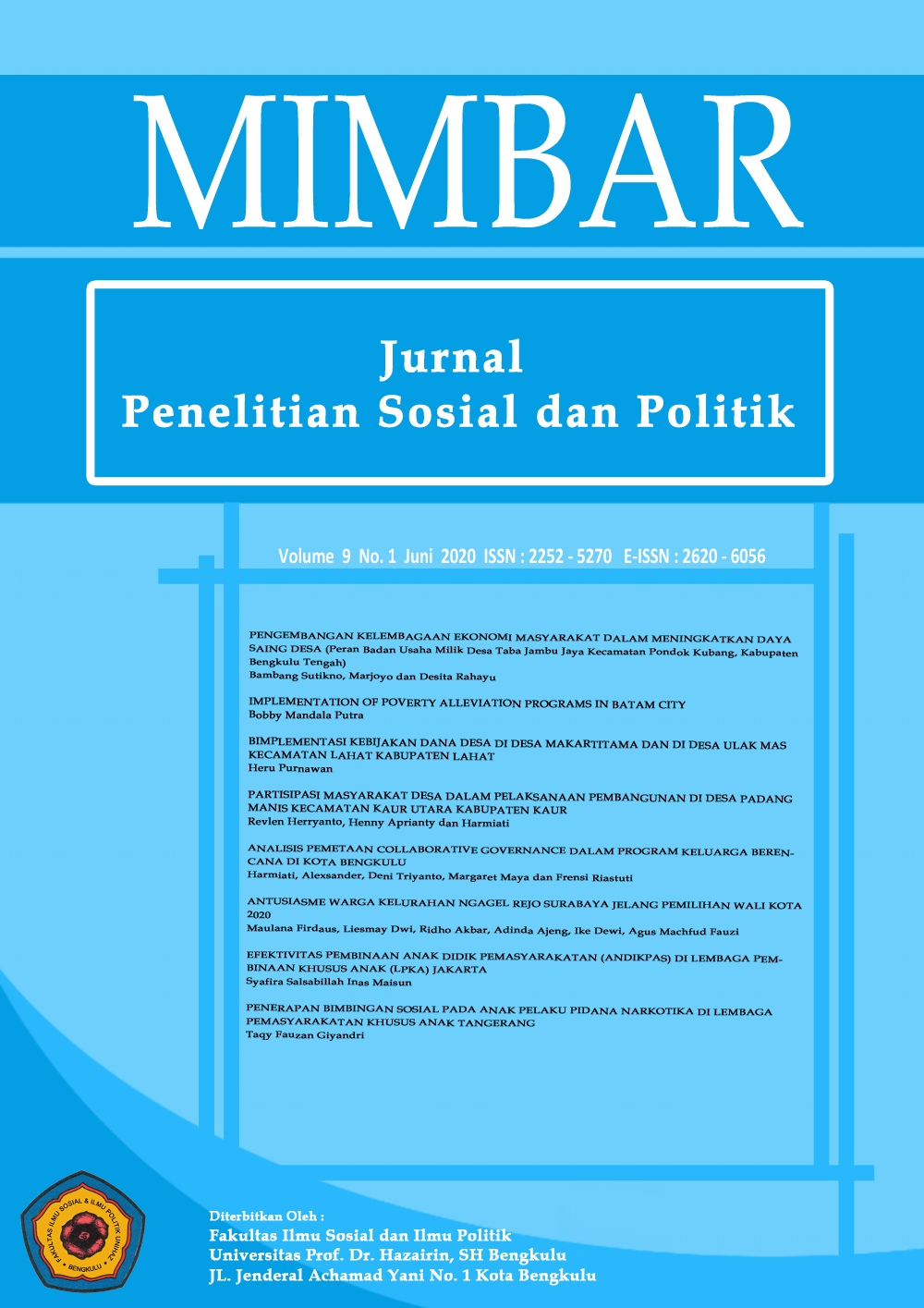ANALISIS PEMETAAN COLLABORATIVE GOVERNANCE DALAM PROGRAM KELUARGA BERENCANA DI KOTA BENGKULU
DOI:
https://doi.org/10.32663/jpsp.v9i1.1278Keywords:
Collaborative Governance, Family Planning Program, Bengkulu CityAbstract
The purpose of this research is to collaborate research conducted by. The Office of Women's Empowerment, Child Protection Control of Population and Family Planning (DP3AP2KB Bengkulu City in an effort to improve the Family Planning (KB) program in Bengkulu City. In this study using collaborative governance theory according to Ansell and Gash (2007: 544), namely institutional design, Leadership, facilitative, and collaborative processes. Qualitative methods is aplied to analyze the primary and secondary data. The research finds that the collaborative governance in efforts to improve, the Family Planning Program in the City of Bengkulu can be denied as achieved, Implementation of collaborative governance according to Ansell and Gash (2007: 544), namely: Initial conditions, Institutional design, Leadership, facilitative, and collaborative processes, however, there is still some discussion regarding facilitative leadership indicators, on supervision, while for initial conditions indicators there is still an imbalance between human resources at TLB level. Besides, The quarduphle helix model is formulated to articulate the urgen elemens of society, professional front-line, interest group, and government in maintaining deliberative family planning policy. The research contributes to establish the prelieminary mapping of collaborative governance in practical policy in decentralized municipal
Downloads
References



